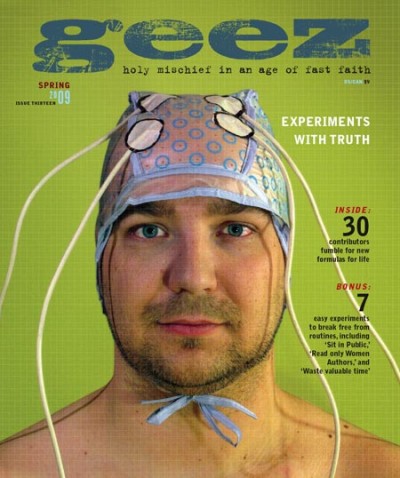Downward mobility
I’ve often wondered how I, a middle-class, rich, white, heterosexual, North American male can practice meaningful solidarity with the working poor. Taking an office-cleaning job is a move in that direction. Sure, this could be a token gesture. But I believe in gestures. They become symbolic acts that represent new realities. I hope it represents the coming of an age where the rich shed power for the sake of greater equality, less stress and cleaner carpets.
Instead of working in an office, I took a job cleaning an office. There’s less social status and financial security when you’re the person who sweeps the floors.
In my case, I’m the one who pushes the red upright vacuum over the grey wall-to-wall carpet. I also gather the trash and take out papers, bottles and boxes for recycling.
It’s actually four offices for six workers. There’s a reception area, board room, kitchen and dining area, glass display case and eight plants. Fortunately, I don’t clean it alone – I do it with my partner Karen. The weekly cleaning usually takes about an hour. And because this is a regular activity we do together, it often feels like a date.
This is my latest experiment along a gentle curve of downward mobility.
Going up
I was born into a German-speaking, Russian immigrant community in Vancouver. We were working class with an anti-intellectual bias. Ours was an ethno-religious enclave that prized hard work and upward social mobility (i.e., acquiring ever-more capital, first homes, then cottages, and now companies and hotels).
After a couple years of youth ministry, a masters degree in religion, and eight years of working with the church press, I started a second graduate degree, this time in journalism.
In my final year in journalism school I worked at two opposing media outlets. I worked at the major daily, The Vancouver Sun, as an editorial page editor, filling in for folks on holiday. I also did a summer internship at Adbusters, a non-profit, bi-monthly magazine which I admired because of its creative, provocative critique of consumer culture and its emperors.
Then one day I was faced with a decision. I got a call from the Sun’s managing editor. She offered me a job as a “desker” in the newsroom. Deskers sit at desks and receive stories from reporters, check facts, trim sentences, write headlines and create captions. The pay started at about $800 a week – just over 40 grand a year – which was rich.
At the same time, I had the option to stay part-time as an associate editor at Adbusters. It paid $12 an hour for one day a week, or less than $100 a week.
Turning point
I was torn. The thought of working in an office tower, overlooking the Vancouver harbour, mountains in the background, felt idyllic. At the same time I found it stressful and deadening. I’d be giving most of my creative energy to someone else, in exchange for a sense of significance and a whack of cash.
My other option was to stay at Adbusters. Rather than feeling numb, there I found my faith in the struggle of humanity coming alive. I found avenues of dissent from a media-driven culture of oppression and repression. It was basically the opposite of working for the commercial media.
The decision was rather easy and would become a turning point in my life. I stayed at Adbusters a couple of years, finishing as managing editor, working for wages that were roughly half of the industry-standard.
We moved back to Winnipeg to reconnect with friends and start a magazine. We still owned a large house there and lived with housemates for a sense of community and to offset expenses. I started a non-profit magazine (which, by the way, you are holding in your hands) with Will Braun and others. The first two years we worked for almost no wages, i.e., two and then five thousand a year; now we make 12. Because we’re all part-time, the rate of pay is about half the industry standard.
Going down?
My next steps aren’t clear. I started the office-cleaning side job over a year ago and it is going well. I teach the occasional course at university, and frankly, I much prefer the lower stress levels at the cleaning end of the system. (For the sake of disclosure, I got the office job because my friends work there as labour organizers. They pay us $18 an hour, which works out to $36 a week. Not bad.)
I often think about my social location when I’m vacuuming the office. All the workers are younger than me. I know they have busy schedules and lots of meetings. I don’t envy their work. My capitalist mind tells me I’m just lazy. My spiritual side whispers to me that I’ve found a path to new joy in having less.
I’ve often wondered how I, a middle-class, rich, white, heterosexual, North American male can practice meaningful solidarity with the working poor. Taking an office-cleaning job is a move in that direction. Sure, this could be a token gesture. But I believe in gestures. They become symbolic acts that represent new realities. I hope it represents the coming of an age where the rich shed power for the sake of greater equality, less stress and cleaner carpets.
Aiden Enns is the publisher of Geez magazine.



Sorry, comments are closed.